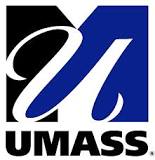Efficacy Study of Anakinra, Pentoxifylline, and Zinc Compared to Methylprednisolone in Severe Acute Alcoholic Hepatitis
| Status: | Completed |
|---|---|
| Conditions: | Hepatitis |
| Therapuetic Areas: | Immunology / Infectious Diseases |
| Healthy: | No |
| Age Range: | 21 - 70 |
| Updated: | 10/14/2018 |
| Start Date: | September 2013 |
| End Date: | October 2018 |
Double-blind Randomized Controlled Trial of Anakinra, Pentoxifylline, and Zinc Compared to Methylprednisolone in Severe Acute Alcoholic Hepatitis
This study will compare two different treatments of acute alcoholic hepatitis. The current
standard of care is treatment with corticosteroids (methylprednisolone). This will be
compared to treatment with anakinra, pentoxifylline, plus zinc sulfate. The participants will
be treated and followed for 6 months and the two treatment groups will be compared for
differences in death rates and laboratory tests that measure liver and gut function.
standard of care is treatment with corticosteroids (methylprednisolone). This will be
compared to treatment with anakinra, pentoxifylline, plus zinc sulfate. The participants will
be treated and followed for 6 months and the two treatment groups will be compared for
differences in death rates and laboratory tests that measure liver and gut function.
This study will test the hypothesis that the syndrome of acute alcoholic hepatitis results
from severe inflammation and dysregulated cytokines. Steroid monotherapy is not effective in
all patients and this study will utilize compounds that have the potential to improve gut
barrier function, to reduce the associated inflammation, and to prevent the development of
hepatorenal syndrome and other organ failure.
Patients will be randomized to receive 28 days of methylprednisolone 32 mg daily OR therapy
that includes a combination of anakinra (interleukin-1 receptor antagonist) 100mg by
subcutaneous injection daily for 14 days plus pentoxifylline 400 mg orally three times daily
for one month plus zinc supplements (220 mg of zinc sulfate) given orally for 6 months. This
combination strategy will address the acute inflammatory component of the disease (anakinra)
and protect against development of hepatorenal syndrome (pentoxifylline), one of the most
frequent causes of death in severe acute alcoholic hepatitis, and improve gut mucosal
integrity (zinc supplements). The primary outcome will be 6 month mortality rate. Secondary
outcomes will be measured at 30, 90 and 180 days.
Individuals who are not participating in the interventional arm of the trial will be receive
standard care and be observed for 6 months. They will be enrolled to have baseline and
interval health information and laboratory results collected.
from severe inflammation and dysregulated cytokines. Steroid monotherapy is not effective in
all patients and this study will utilize compounds that have the potential to improve gut
barrier function, to reduce the associated inflammation, and to prevent the development of
hepatorenal syndrome and other organ failure.
Patients will be randomized to receive 28 days of methylprednisolone 32 mg daily OR therapy
that includes a combination of anakinra (interleukin-1 receptor antagonist) 100mg by
subcutaneous injection daily for 14 days plus pentoxifylline 400 mg orally three times daily
for one month plus zinc supplements (220 mg of zinc sulfate) given orally for 6 months. This
combination strategy will address the acute inflammatory component of the disease (anakinra)
and protect against development of hepatorenal syndrome (pentoxifylline), one of the most
frequent causes of death in severe acute alcoholic hepatitis, and improve gut mucosal
integrity (zinc supplements). The primary outcome will be 6 month mortality rate. Secondary
outcomes will be measured at 30, 90 and 180 days.
Individuals who are not participating in the interventional arm of the trial will be receive
standard care and be observed for 6 months. They will be enrolled to have baseline and
interval health information and laboratory results collected.
Inclusion Criteria:
1. Ability to provide informed consent by subject or appropriate family member
2. Age between 21-70 years
3. Recent alcohol consumption > 50 g/d for > 6 months, continuing within two months
before enrollment
4. d. At least 2 of the following symptoms of acute alcoholic hepatitis: Anorexia,
nausea, RUQ pain
5. Liver biopsy showing alcoholic hepatitis (steatohepatitis) OR ultrasound of liver
showing increased echogenicity OR CT scan showing decreased attenuation of liver
compared to spleen OR MRI showing fatty liver (decreased signaling intensity on T1
weighted images) If liver biopsy confirms diagnosis of alcoholic hepatitis then
requirement for AST elevation > 50 is waived. The liver biopsy must be done within 60
days of study enrollment.
6. AST levels:
- AST> Or equal to 50 IU/mL but less than 500 IU/mL
- AST> ALT, ratio AST/ALT> 1.5; ALT < 200 IU/mL
- or biopsy proven alcoholic hepatitis.
7. Model for End-Stage Liver Disease (MELD) ≥ 20 and Maddrey DF ≥ 32.
8. Willingness to utilize two reliable forms of contraception (both males and females of
childbearing potential) from screening through the first 6 weeks of the study.
Exclusion Criteria:
1. Hypotension with BP < 80/50 after volume repletion
2. Pregnancy; incarceration; inability to provide consent or lack of appropriate family
member
3. Signs of uncontrolled systemic infection: Fever > 38°C and positive blood or ascites
cultures and on appropriate antibiotic therapy for ≥ 3 days within 3 days of inclusion
4. Acute gastrointestinal bleeding requiring >2 units blood transfusion within the
previous 4 days
5. Undue risk from immunosuppression: Positive HBsAg; a positive skin PPD skin test, a
positive quantiferon, or history of treatment for tuberculosis; history of any
malignancy except skin cancer but including hepatocellular carcinoma within the last
five years; HIV infection
6. Recent previous treatment with corticosteroids or other immunosuppressive medications
including specific anti-TNF therapy (not including pentoxifylline), calcineurin
inhibitors within the previous 3 months. Treatment with corticosteroids for ≤3 days
prior to baseline is acceptable.
7. Evidence of acute pancreatitis: CT evidence or amylase or lipase > 5 X upper limit of
normal (ULN).
8. Serious cardiac, respiratory or neurologic disease or evidence of other liver diseases
such as autoimmune hepatitis, primary biliary cirrhosis, primary sclerosing
cholangitis, Wilson disease, hemochromatosis, secondary iron overload due to chronic
hemolysis, alpha-1-antitrypsin deficiency
9. Acute or chronic kidney injury with serum creatinine > 3.0 mg/dl.
We found this trial at
4
sites
University of Texas Southwestern Medical Center UT Southwestern is an academic medical center, world-renowned for...
Click here to add this to my saved trials
Cleveland Clinic Cleveland Clinic is committed to principles as presented in the United Nations Global...
Click here to add this to my saved trials
University of Louisville The University of Louisville is a state supported research university located in...
Click here to add this to my saved trials
Univ of Massachusetts Med School As the commonwealth's only public medical school, we take seriously...
Click here to add this to my saved trials



